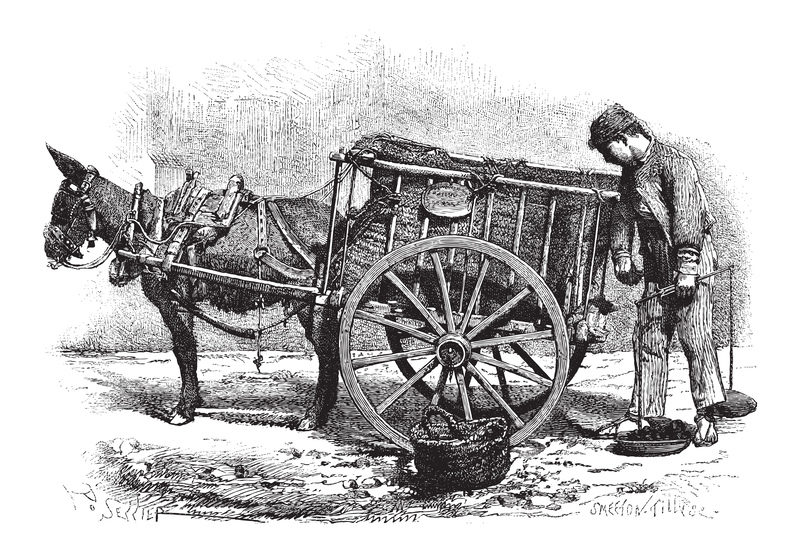Recycling Your Old Cookware: A Green Guide
Is your kitchen cluttered with pots, pans, and other cookware you no longer use? Don't toss them in the trash! Recycling your old cookware is not only a sustainable choice but also an environmentally responsible action. This green guide will show you how to give your old cookware a new life, reduce waste, and make our planet a healthier place.
Why Should You Recycle Old Cookware?
When kitchenware like nonstick pans, stainless steel pots, and cast iron skillets wear out or become damaged, the first instinct for many is to throw them away. However, discarded cookware mostly ends up in landfills, where it can take decades or centuries to decompose. Many cookware items are made from metals, plastics, and coatings that can leach into the environment, polluting soil and water.
Recycling cookware conserves resources and energy, reduces pollution, and supports the circular economy. By keeping your old pots and pans out of landfills, you're helping to conserve natural resources and minimize environmental harm.
The Problem with Disposing of Old Cookware in Landfills
- Long Decomposition Time: Items like cast iron and stainless steel can take hundreds of years to break down.
- Toxic Chemicals: Nonstick coatings (such as Teflon) can release toxic chemicals if incinerated or buried.
- Waste of Resources: Metals in cookware are finite resources that can be recycled and reused.
- Increasing Waste: Millions of tons of metal and other waste end up in landfills annually.

Identifying Cookware That Can Be Recycled
Before recycling your old cookware, you need to understand what materials they're made of. Cookware materials include:
- Aluminum
- Stainless steel
- Copper
- Cast iron
- Nonstick-coated pans
- Ceramic or glass
Most metal cookware (aluminum, stainless steel, copper, cast iron) is highly recyclable. However, nonstick coatings and composite materials may require special handling.
Non-Recyclable Cookware Materials
- Pots and pans with plastic handles that cannot be removed
- Ceramic cookware with cracks or heavy damage
- Cookware with heavy coatings or mixed materials that can't be separated
It's essential to separate recyclable from non-recyclable materials. Always check with your local recycling center for their requirements and guidelines.
How to Prepare Cookware for Recycling
Here are some steps you can follow to prepare your old kitchenware for recycling:
- Clean thoroughly: Remove food residue, grease, and burnt material.
- Remove non-metal parts: Take off plastic, rubber, wooden, or silicone handles if possible.
- Disassemble composite items: For items made of mixed materials, separate the metal from the other materials.
Special Note for Nonstick Cookware
Many recycling facilities do not accept nonstick pans (e.g., Teflon) due to their chemical coatings. Contact your local center and ask about special drop-off events or mail-in programs for nonstick cookware recycling.
Options for Recycling Cookware
1. Scrap Metal Recycling Centers
Metal cookware like stainless steel, aluminum, and cast iron can usually be dropped off at local scrap metal yards or recycling centers. Some centers even pay for scrap metal by weight.
- Find a facility: Search online for "scrap metal recycling near me" or use recycling locator tools from organizations like Earth911 or RecycleNation.
- Check materials accepted: Confirm if they accept mixed-material items or require separation.
- Drop off properly: Bring clean and separated cookware to the facility during their business hours.
2. Municipal Curbside Programs
Some local recycling programs allow for small metal items to be picked up with residential recycling bins, but this varies by location. Larger pieces of cookware may need to be brought to a specific drop-off location. Always check your city's recycling rules.
3. Manufacturer Take-Back Programs
Certain cookware brands (for example, Calphalon and TerraCycle) have take-back or recycling programs. Some offer incentives such as discounts on new products:
- Calphalon ReNew: Send in your old Calphalon cookware for recycling, and receive a discount on new purchases.
- TerraCycle Kitchen Separation Program: Accepts all brands of metal and nonstick cookware via mail-in, ensuring items are recycled responsibly.
- Other Brands: Check with your cookware manufacturer for potential eco-friendly return programs.
4. Donate or Upcycle Your Cookware
If your pots and pans are still in usable condition, consider donating or upcycling instead of recycling:
- Donation: Give to local thrift stores, shelters, or charities in need.
- Online Marketplaces: List on platforms like Craigslist, Facebook Marketplace, Freecycle, or Buy Nothing groups.
- Upcycling: Repurpose your old cookware as planters, storage containers, or unique home decor pieces.
Safety Tips for Recycling Old Cookware
- Wear gloves when handling sharp, rusted, or damaged cookware.
- Be careful when removing handles and other parts.
- Do not burn nonstick or coated cookware to strip off finishes. Burning releases toxic fumes.
- Follow your local recycling center's safety rules and requirements.
Creative Ways to Reuse and Upcycle Old Kitchenware
Not all cookware has to be recycled in the conventional sense. Upcycling brings new life to old items while minimizing waste. Here are some inventive ways to reuse old cookware:
Repurpose as Garden Planters
- Old pots, pans, and colanders make perfect planters. Drill drainage holes, fill with soil, and add your favorite herbs or flowers.
Create Kitchen Decor
- Turn old frying pans into wall art or clocks.
- Copper pots can become rustic kitchen organizers or utensil holders.
Children's Play Items
- Use clean, safe cookware for play kitchens or musical instruments for kids.
Storage Solutions
- Stack and use deep pans for storing kitchen tools, pet food, or even bathroom items.
Upcycling not only extends the life of your cookware but also allows for creative, eco-friendly projects that personalize your living space.
The Lifecycle of Recycled Cookware Materials
How does recycling cookware reduce resource use and benefit the environment? Here's what happens after you recycle your kitchen items:
- Collection: Metal items are collected from recycling bins or centers.
- Sorting & Processing: Materials are sorted by type (aluminum, steel, etc.) and cleaned.
- Melting: Metals are melted down and purified for reuse.
- Manufacturing: The purified metals are made into new products--possibly even new cookware, car parts, or construction materials.
Recycling cookware provides raw materials for new products, reducing the need to mine virgin resources and saving energy. For example, recycling aluminum uses up to 95% less energy than producing it from ore!
How to Find A Local Cookware Recycling Program
If you're not sure where to recycle your old pans and pots, try the following steps:
- Online Search: Type "recycle cookware near me" or "kitchenware recycling" into search engines.
- Recycling Locators: Use tools from Earth911, Eg, or RecycleNation - enter your zip code and item type.
- Call Your Local Waste Department: Ask about metal recycling options and special collections.
- Check Brand Websites: Some cookware brands have dedicated recycling channels or partnerships.
Tips to Prolong the Life of Your Cookware
Before you recycle, consider extending the lifespan of your pots and pans with these care tips:
- Hand wash when possible: Machine dishwashing can degrade surfaces and coatings.
- Avoid metal utensils: Use wood, silicone, or plastic to prevent scratches.
- Follow manufacturer instructions: Each material has unique care needs.
- Restore cast iron: Re-season rather than recycle rusty pans--cast iron is almost indestructible!
- Repair if possible: Replace handles or knobs before discarding cookware entirely.

FAQs on Recycling Old Cookware
Can I put my cookware in the regular recycling bin?
No, most regular curbside recycling programs do not accept cookware due to its size, material complexity, and coatings. Instead, take it to a scrap metal recycling center or participate in a special cookware recycling event.
How do I dispose of nonstick pans?
Nonstick pans, especially those with PTFE (Teflon) coatings, are often not accepted in regular metal recycling. It's best to check with your local recycling authority or use mail-in programs offered by companies like TerraCycle.
What if my cookware is still usable?
Donate, gift, or upcycle! Many people, community kitchens, or shelters would appreciate gently used cookware.
Can I recycle ceramic or glass cookware?
Usually not with regular glass recycling. Cookware glass (like Pyrex) has a different melting point and can contaminate glass recycling streams. Check for special ceramic or glass recycling options in your area.
Is it worth my time to recycle cookware?
Absolutely! Recycling old cookware helps conserve resources and reduces environmental pollution.
Conclusion: Make Recycling Cookware Part of Your Green Routine
Recycling your old cookware is a small action with big environmental benefits. Whether you are dedicating your efforts to sustainability or simply cleaning out your kitchen, choosing the right recycling option keeps valuable materials in use and out of our landfills. Remember, before throwing anything away, ask yourself: Can this be recycled, reused, or repurposed?
Turn your old cookware into a greener future--one pan at a time!
- Identify cookware materials for proper recycling.
- Use local scrap yards, drop-off events, or brand take-back programs.
- Extend the life of your kitchenware through care or upcycling.
By following this guide, you'll keep your kitchen eco-friendly, reduce waste, and be part of the movement towards a more sustainable planet.